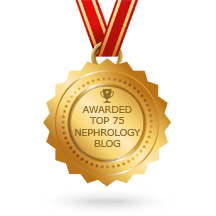 No, Charlie Brown, grief is not good. Grief is not good at all. My big brother, Alan Peckolick, died 10 days ago. You can read about him in lots of publications and I’ll even provide the links.* But you can’t read about him as my big brother in any of these.
No, Charlie Brown, grief is not good. Grief is not good at all. My big brother, Alan Peckolick, died 10 days ago. You can read about him in lots of publications and I’ll even provide the links.* But you can’t read about him as my big brother in any of these.
Nowhere do they mention how Alan used our brother Paul’s accordion for sound effects as he told us scary stories when forced to babysit. Nowhere do they mention how this non- violent boy promptly tackled his friend to wash his face in snow after he caught the friend throwing a snowball at me, his little sister. Nowhere do they mention his being told to take Paul and me to his scout meeting and his doing it, inappropriate or not.
Six and a half years is a big age difference when you’re growing up. You sort of catch up as adults. We never did. We lived in different worlds. He was a giant in the art world. I was happy raising my little girls, acting, teaching, and writing on a less than giant scale. Nevertheless, he was my brother and I made sure we kept in touch.
As Jews, we sat shiva. That is the week long period of mourning for the first degree relatives of the deceased. At their loft in Manhattan where shiva was being observed, I met many members of his social circle who were surprised Alan had a brother and sister and who asked me to tell them anecdotes about growing up with him. They praised his art world, and rightly so. I praised the big brother as a child… and then a teenager. They were charmed by the Alan that was this age; I was charmed by the Alan they knew as an adult.
But I found myself grieving. It was not unexpected. I hurt all over, nothing specific, just a general aching… or was it my heart I felt aching? Wait a minute, what was happening to my kidneys throughout this process of grief?
The day he was taken off life support, I was at my lab having the usual quarterly blood draw. Alan and Jessica Weber, his wife, were in Connecticut where they have a country house and where the catastrophic fall that landed him on life support occurred; I was in Arizona. There was nothing I could do from afar and I knew I could trust Jessica to keep me informed. I thought keeping myself to my usual schedule would help me cope.
Except for the values in the next sentence, all my tests came back as low as they could while still being in the normal range. That had never happened before. While my GFR stayed stable, my BUN was at 30 (‘normal’ range is 8-25),  Bun/Creatinine Ratio 29.1 (‘normal’ range is 10-28) and my glucose was 113 (‘normal’ range is 65-99). I was underwhelmed. I figured it was my brother’s situation making my body goes haywire. I still am.
Bun/Creatinine Ratio 29.1 (‘normal’ range is 10-28) and my glucose was 113 (‘normal’ range is 65-99). I was underwhelmed. I figured it was my brother’s situation making my body goes haywire. I still am.
PyschCentral at https://psychcentral.com/lib/your-health-and-grief/ offers the following explanation of how grief affects our bodies:
“…. At the death the brain ‘translates’ the stress of grief into a chemical reaction in the body. The pituitary gland located at the base of the brain is stimulated to produce a hormone called adrenocorticotrophin hormone (ACTH). This reaction is a “protective” one and in essence makes the body ready to do battle. The ACTH (from the pituitary gland) then travels to the adrenal gland, a gland at the top of the kidneys, which causes a chemical reaction which ultimately produces cortisone. As the cortisone level increases it causes the production of ACTH to level off.
What happens in the case of grief where the stress continues for many months? The cycle does not operate as it should. Because the stress is continuing, the production of ACTH is continuing thus causing the adrenal gland to produce more and more cortisone. The result is an abnormally high level of cortisone circulating in the blood sometimes exceeding ten to twenty times the normal levels.
 A high level of cortisone is one of the things that causes our immune system (the system that normally fights off disease carrying bacteria fungi and viruses) to falter. The high level of cortisone affects yet another gland the thalamus which manufactures the white cells of our blood. With the thalamus not functioning properly, it cannot produce white cells that are effective. Those white cells normally locate and phagocytize (eat up) the invading germs, viral particles or even pre-cancerous cells. Thus with the white cells unable to function properly the individual is 100% more susceptible to the most common germs.”
A high level of cortisone is one of the things that causes our immune system (the system that normally fights off disease carrying bacteria fungi and viruses) to falter. The high level of cortisone affects yet another gland the thalamus which manufactures the white cells of our blood. With the thalamus not functioning properly, it cannot produce white cells that are effective. Those white cells normally locate and phagocytize (eat up) the invading germs, viral particles or even pre-cancerous cells. Thus with the white cells unable to function properly the individual is 100% more susceptible to the most common germs.”
Well, what is cortisol? As I mentioned in SlowItDownCKD 2016,
“Cortisol is a hormone that controls metabolism and helps the body react to stress, according to Endocrineweb. It affects the immune system and lowers inflammatory responses in the body.”
So our already compromised immune system is compromised even more compromised. Are we now at the mercy of our grief? Nothing that dramatic, folks.
We can up our vitamin D – with our nephrologist’s approval first, of course. As mentioned in the glossary of What Is It and How Did I Get It? Early Stage Chronic Kidney Disease,
“Vitamin D: Regulates calcium and phosphorous blood levels as well as promoting bone formation, among other tasks – affects the immune system.”
We can up our NREM (non-rapid eye movement) sleep. I turned to The Book of Blogs: Moderate Stage Chronic Kidney Disease, Part 2 for this information:
“WebMD tells us
During the deep stages of NREM sleep, the body repairs and regenerates tissues, builds bone and muscle, and appears to strengthen the immune system.”
My favorite deterrent to a further compromised immune system? Hugs. MedicalNewsToday at http://www.medicalnewstoday.com/articles/275795.phpat explains:
“Oxytocin has an anti-anxiety (anxiolytic) effect ….”
Less anxiety, less stress. That’s something that could be useful during times of grief. I didn’t have to clear this with my nephrologist, hugging is a way of life with my family and friends, and it somehow, magically, lessens the pain for a little while.
Until next week,
Keep living your life!
*The links to Alan’s obituaries:
http://www.huffingtonpost.com/entry/alan-peckolick-dead_us_5988ae58e4b0d7937388f5be
https://www.washingtonpost.com/local/obituaries/alan-peckolick-influential-designer-from-madison-avenue-to-hollywood-dies-at-76/2017/08/10/ea33134a-7dd7-11e7-9d08-b79f191668ed_story.html?utm_term=.d2b395bfa3c6




Dear Gail,
Just wanted to express my condolences on the death of you brother to you, your family and his wife. What an amazing and talented family. I was impressed with what you wrote about Alan and what I read in the links. He lived a good life. Thank you for sharing this with us.
My continued thanks for your SlowItDownCKD. I like the way you write – complex subject in simple down to earth easy to understand and relate to way.
Tonie Maheshwari
Thank you, Tonie. Accolades are welcome at any time, but especially now. I miss the big brother who panicked when he didn’t know how to braid my hip length hair.